Focus On: IIFYM
(If It Fits Your Macros)
I’ve received a few requests to talk about macro counting, especially since it’s surged in popularity on Instagram, particularly in the past year or so. You may have seen a picture of a giant donut covered in frosting + sprinkles, or a double-stuffed pizza and the hashtag “IIFYM,” which stands for If It Fits Your Macros. This is also referred to as “flexible dieting,” which has been a staple in the bodybuilding world for quite a while. The idea is that you want to meet certain macronutrient guidelines, but it doesn’t necessarily matter how you get there. This means that your “carbs” could come from sweet potato or sugar cookies; as long as you hit your numbers, it shouldn’t negatively affect your body composition.
(That one time I made bacon cookies)
So what exactly is macro counting, and how does it work?
First off, lets start by breaking down macros and what they are. The generally counted macros include fats (9 calories per gram), protein (4 calories per gram) and carbs (4 calories per gram). The recommended macro ratios vary depending on body composition your personal goals: whether you want to lose fat or gain muscle. To get more information on how these are calculated (and the ratios that are suggested), I paid a popular Instagrammer (she’s a certified personal trainer without any nutrition background) to calculate my macros for me. It was pretty interesting to see what she sent back.
Here is the info:
(I don’t think anyone should follow these numbers -please don’t- but am posting them so that we can take a look at the actual ratios and calorie suggestions.)
Training day macros: Protein 150g (46%) Carbs 140g (43%) Fats 35g (10%) = 1475 calories. Needless to say, I would be a hangry monster if I consumed that little on a training day.
Off day macros: Protein 150g (44%) Carbs 160g (47%) Fats 30g (8%) = 1510. Again, not enough for me. I also found it interesting that the suggested ratios for healthy fats were far below the recommended intake of 20-35%. We need healthy fats, friends! Not only to they aid our bodies in transporting nutrients, protect vital organs, and promote satiety, but they also enable the body to burn fat.
In a nutshell, IIFYM is a glorified version of calorie counting, but takes it to the next level by ensuring that there’s a mix of macronutrients. I appreciate this, because back in the day when I calorie counted, I ate multiple granola bars throughout the day. They were full of sugar, devoid of protein, but very inexpensive (perfect for my then-college budget); I thought I was getting good snacks for my buck. I think if I would have tried to count macros, it would have been too difficult/confusing at the time, but it may have encouraged me to get more protein into my day. While IIFYM does suggest a mix of macros, I don’t find the suggested ratios to be a healthy or sustainable mix, particularly due to the very low suggested fat percentage and low calorie intake overall.
When it comes to weight loss, calories expended need to be greater than calories consumed, no matter where those calories come from. For this reason, if you’re eating less than you’re burning (through everyday activities + the body’s processes to live + any workouts), you will likely lose weight. That is why this plan could be successful for those who follow and enjoy it. That being said, someone who eats 1800 calories of whole grains and starches, lean proteins, and healthy fats is going to look and feel dramatically different than someone who gets the same amount of fuel from fried and refined sugar-laden foods.
Why I like IIFYM:
Nothing is off limits. I like the fact that it seems to remove food fears for many people who follow this method. I’m a huge fan of indulging in something that you’re craving, whether it’s classified as “healthy” or not. Variety is the spice of life, and by allowing yourself to enjoy everything, I’ve found that it helps to nix cravings and going overboard on serving sizes.
Why I don’t like it:
A donut is not a sweet potato. A calorie is a calorie, yes, but as I mentioned before, someone who eats a balance of healthy foods (with some of the soul-hugging stuff in there, too) is going to feel and look much differently than someone who is depending on refined sugars and nutritionally-devoid science project “food.” A good rule of thumb: veggies or fruit at every meal, protein in every mean;/snack, and drink lots of water throughout the day.
It takes the intuition out of eating. After learning to eat what my body enjoys/craves, it makes me sad to see plans that turn eating, a joyous and social event, into a math project. Food should be fun, and if you find yourself cramming numbers or eating egg whites at night to meet your macros, I don’t see it as a lifestyle that can be enjoyable sustained for the long term.
I pay attention to macros throughout the day, to make sure I’m getting a mix of everything I need, but it’s a simplified version that doesn’t require calculations. All the details are in my book, which I can’t wait to share with you guys <3
Do you count macros/calories? What’s something that you eat or enjoy every single day?
xoxo
Gina
More:

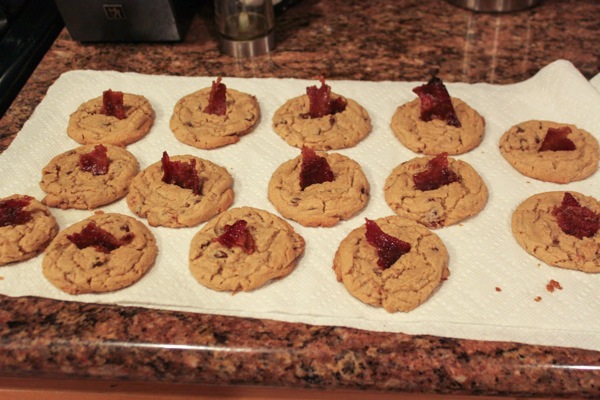



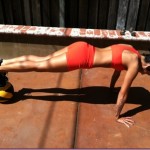


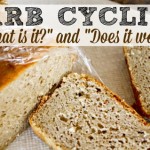

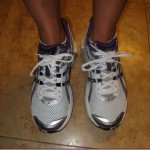
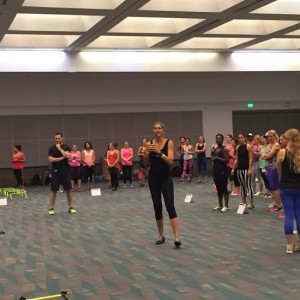







I do not count calories or macros – for my daily eating I try to get a good mix of healthy fats, proteins and good carb sources. I 100% agree with you here – it is great that nothing is off limits, but it takes the enjoyment out of eating. Plus, why should I not eat the sweet potato so I can have cake? Makes no sense really.
<3 <3 thank you for this! I have a friend who sort of alternates among different forms of orthorexia, and when she was counting macros she actually kept a color-coded spreadsheet. It sounded exhausting. A calorie may be a calorie in terms of energy measurements, but some calories come along with nutrients that your body can use, and others don't. Seems to follow that it should matter whether it's a bag of chips or veggies with hummus. Any diet plan that requires stupid amounts of time, energy, and attention feels too much like my eating disorder to feel good to me.
The first thing I thought was the fat % seemed way too low. But I’m a huge fan of fats from nuts and avocados so I could never maintain something that low.
It seems the same as calorie counting to me and what I’ve learned is calorie counting drives me (personally) insane. I do think it is helpful, at first, if you are really trying to change your eating habits. Seeing that piece of cake is half your day’s calories really hits home it should be a sometimes treat. But after a while, I ended up with my stomach rumbling at 10:30, even after a good breakfast and realize I need to listen to my body, not a calorie counter. Those times I was starving by 10:30 were the mornings after a really tough CrossFit workout. And a calorie is not a calorie if you don’t want to be hungry all the time. Eating cereal for breakfast might fit into calories for the day but I am always super hungry about 2 hours after I eat it.
But like everything, to each their own. If it helps someone maintain a healthy lifestyle, then that works!
P.S. I really like that you took the time to break this down for us! Super helpful and a great analysis!
AGREED on every single note. I couldn’t have said it better myself and I think we view eating/food/nutrition very similarly. Great post!
…and to add to that — I used to be a calorie counting maniac and it completely took the joy out of eating. To this day, I know the calories in almost everything I eat just because it seems to be permanently scorched into my brain. For someone striving to lose weight, YES, I think it may be necessary to count and keep track of calories (and maybe even macros). It can definitely make weight loss seem more attainable and helps some people to stay focused and on track, but otherwise, I find it unnecessary.
Preach girl. Preach.
The IIFYM trend is getting ridiculous! It seems like so many people on social media tout themselves as “experts,” and often their only qualification is looking good. :/ Crazy to see what was recommended for you…1500 calories would definitely NOT make me a happy or healthy camper, haha.
I counted calories in high school. It got obsessive, and I got “soft” from not being able to keep/build enough muscle. These days, I eat what I want and make an effort to get plenty of good-quality protein at each meal. And dark chocolate. That happens daily.
This sounds incredibly confusing! Trying to lose weight is challenging and confusing enough when you first start out…having to calculate these numbers along with figuring out what workouts work for you is enough to send an already insecure person right out of the gym.
What I’ve learned (from you!) is that I am going to feel and even look better if I fuel my body with foods that are substantial, delicious, and healthy. I’m actually excited that today I’m going to eat my homemade butternut squash soup (all veggies, no cream!) and a salad for lunch, and fuel for tonight’s Zumba class with a Larabar and veggies later this afternoon. I think this kind of “diet” can really put a weight loss/nutrition novice on the wrong track by telling them it’s OK to eat junk as long as they workout. I could never see keeping it up in the long term.
I used to be an avid calorie counter (True Life: I could probably tell you the # of calories in every food) but it was limiting and no way to live. I’ve switch to intuitive eating and I try to eat as clean and whole as possible, but occasional treats and goodies here and there are certainly allowed. I now enjoy food and use it as fuel. I also used to want to be “skinny” but now I just want to healthy. Personally, I don’t like counting macros because it’s a quality of life type of thing, but I know everyone has to find what works for them on their own =). And if I hadn’t gone through my cray calorie counting stage, I may not be in the healthy place I am today.
I have never heard of IIFYM…but have heard of macros. Interesting. Thanks for distinguishing between calorie counting and food quality – a donut in fact, is not a sweet potato and not all foods are created equal! I just try (and tell me nutrition clients too) to make sure every meal or snack has a carb, protein, and healthy fat. I don’t count how much of each though. Thanks for an informative post!
Thank you for this post!!! I have a friend that is doing bikini competitions and this is what she is all about. All of her facebook posts and instagram pictures are all about the marcos and it’s driving me crazy. She’s saying that she will be doing this for the rest of her life. I don’t see how someone can do that. She can’t even go out and enjoy dinner with her husband because of her marcos. I’m really working on intuitive eating right now and I am feeling better than ever. Between limiting my sugar intake and doing T25 my body is reacting in great ways. I’m hoping to visit my specialist in December and be taken off my meds.
I don’t understand why they would suggest fewer calories on a training day than an off day, that seems counter intuitive. Overall very interesting, thanks for sharing!
Maybe this IG trainer calculated Gina’s macros for weight loss instead of maintenance? Still, 1500 calories is SO low.
i told her i wanted to maintain my weight but build some muscle. very low calories, especially for training and workouts!
I do like the concept if IIFYM, but it takes a lot of time tracking rverything and i make a lot of home cooked things so measuring everything out isn’t fun.
I could see someone doing this for a short-term reason, like preparing for a fitness competition or getting a read on their “normal” habits. Sometimes I log a day’s worth of food just so see where my baseline is. But I don’t think it is or is meant to be sustainable, and encourages obsessive number-crunching. Food is nourishment, so if you’re not feeling nourished and satisfied, something is wrong.
IIFYM changed my life. It really helped repair my relationship with food and start to see food as fuel, not good and bad. I eat more intuitively now, but counting macros certainly helped me transition to this stage and it has helped my clients to do the same too!
But what if you are not a bodybuilder, or have a crazy strength routine. I am thinking about older women who walk for exercise. They do not quite have the muscle to store excess glycogen etc. Would you make the case that it would work for them? Not trying to attack you, I am just curious.
For a short period of time recently I was using MyFitnessPal to check in on my macros, but I found it a bit stifling. Now I go off of portion size and knowing that I need to get protein in every meal and snack. I also had a nutritionist tell me what my macros would be, and there’s no way I could stay under the calorie limit they gave. I like food too much, and I need a lot of it. Good post!
Great post! I want to comment with my experience because I have been on both sides of the macro-tracking spectrum.
I am currently tracking my macros, but the trainer I am working with has divided by percentages a little differently: roughly equal parts carbs, protein, and fats (about 34% each for total calorie intake). Like you, I was concerned about the reduced calorie intake for training days. The calorie intake wasn’t dramatically lower than what I eat normally on non-workout days, but I always felt like I could and should eat more on days I workout.
Part of my agreement with this new trainer is that I will at least *try* everything that I’m told and then assess how it’s working for me – and after trying it for 3 weeks now, I have to admit I am surprised to see I have had 0 problems with calorie intake/energy on my workout days. Yes, I had to change up my meals a little bit to fit the recommendations and make sure I’m reaching my goals each day, but I think I’ve reached a sweet spot where I am eating things I enjoy eating – including indulgences here and there – and staying within my goals. I don’t think I’ll eat like this for the rest of my life, but for my fitness goals at the moment, I’ve learned a lot about macro-tracking and how it can work with my lifestyle.
Thank you for this informative post! I’ve always been curious about the pros and cons of macro counting.
I have only recently learned about this and I was in a FB group of all flexible dieters (had to leave because it was too crazy). For me, I found it a weird contradiction. You can eat what you want, which is why people say it’s freeing. But what is freeing about tracking every little macro in your foods? I think it’s a great way to balance what you eat, but I found the calories too low for my marathon and ultra marathon training (the ones I found did have a % of fat than you found, but still). Thanks for writing about this, though!
Interesting post! The numbers that trainer calculated for you seem kind of crazy, considering your activity level. I do like that IIFYM doesn’t deem any foods off limits, but all that math, damn, who has the time??
I personally think it’s easier to focus on the actual food choices versus counting every little number. I mean, maybe I’d be leaner if I counted everything, but for me that takes the joy out of food prep and eating. Typically if I have a fat and/or carb heavy meal, I naturally crave lean protein and vegetables at the next meal, so I think I intuitively eat a well balanced diet most of the time if I go by how I feel…does that make sense?
Great post! I do not count macros or calories anymore. Back in the day, thank goodness it was only a short stint of about 6 months of ao, but I would weigh my good or measure out all of my portions with measuring cups because that’s what my trainer said I had to do to lose weight and hit my goals. It totally sucked the fun out of food, made it tedious and make me crave those ‘off-limit’ foods like none other. Once I came to my senses and ditched the measuring/weighing and started to eat everything in moderation, I was a much happier person. I’m sure those around me thought so too
This is a very interesting post! I’ve been doing a fair amount of reading on this topic particularly on the site “Eat to Perform”. It is similar in that is focused on macros, however their recommendations are MUCH higher than what you quoted. Their recommendations for carbs, fats, and total calories are higher than IFFYM craze as you described. I do see the trap of becoming a macro counting crazy addict or thinking eating cake and pizza everyday is fine IFFYM, but for me I do like looking at my macros because it is allowing me to let go of the mindset of “I’m not dieting because I still eat carbs, as long as they are healthy carbs.” And then having a layer of guilt if I consume white rice or white potatoes let alone a giant pretzel bun burger at a restaurant. (I know the guilt is a horrible thing and try my hardest to keep it out of my head, but sometimes it sneaks in.)
Eat to Perform has it’s drawbacks in that they won’t tell you to not eat pop-tarts and processed cereal to get to your carbs on a regular basis. However if those things are treats and you enjoy them on occasion it’s nothing to beat yourself up over. ETP has allowed me to look at carbs not as bad carbs vs. good carbs but rather there is an ideal time to consume each of them. On top of it, I try to get both types of carbs from natural food, but enjoy that I feel guilt free for eating a bowl of cereal. Plus I’ve realized I don’t get nearly enough protein or carbs to support my goals and activity levels! I’m hoping ETP is a good way to keep me on track to intuitive eating as I do plan to drop the macro counting once I’m in a good place.
(Please note, I’m not compensated for mentioning ETP, it’s just something that I’m trying right now)
So my take away is IFFYM can be a good thing or a bad thing depending on who it’s for and what the recommended ratios/amounts you follow actually are.
Is the goal of macro-nutrient counting to lose weight (admittedly, this is potentially a silly question, but I really don’t know)? If not, how could any person who walks around the block a few times and runs errands and/or goes to work be satisfied eating so little?
not a silly question at all! usually it’s a fat loss goal, but i’ve seen people use it in a variety of ways
I definitely do not count calories or macros…. that would be maddening it seems! I do pay attention to making sure I get a variety of macros throughout the day and try to balance it out with meals and snacks as the day goes on.
I rarely go a day without eating hummus and some kind of nut butter!
This is not my thing at all but was very interesting to read and learn about! Thanks for sharing!
Thanks for the info! I think calorie counting is very valuable for people who are over weight and struggle with eating the right portions & serving sizes. I agree with you on the macros. I do best on high protein & healthy fat diets. Some people need more carbs. I don’t and neither does my bee….hind. But everyone is different.
You paid someone who you knew had no nutrition education or background to calculate your macros? And your response was, ” I don’t find the suggested ratios to be a healthy or sustainable mix.” No kidding!
When done *correctly*, IIFYM is a simple, healthy way of meeting nutritional goals.
yes, just for entertainment/research purposes. sadly, it’s a common thing to see people spewing fitness plans/workouts and prescribing diets without the proper education
i agree that when it’s done correctly, if you enjoy it, it can work for a variety of goals. all in all, though, i don’t see it as a sustainable way to live
It would’ve made a more interesting post to have had the information come from someone with qualifications. I’m betting the results would’ve been different. I don’t see the point in paying, then promoting them on your blog with zero qualifications. It’s not only irresponsible, I don’t see the point in even bothering with them. It makes what could’ve been an informative post nothing more than fluff.
i think it was an important post the demonstrate the reasons why you should go to a professional instead of trusting the information from random “coaches” on instagram. a lot of people do it, and i wanted to discuss why it’s not a smart option. i did not promote anyone on my blog; it was the opposite.
First of all – 1500 calories on a training day = HAHAHA.
I am a Registered Dietitian and get so fed up with all these crazy things! If you are a body builder and need to follow certain macros to achieve your goals, I think this is great. But for average-Jane, intuitive eating is a much better way to go!! Counting calories, let alone macros, is no way to live your life.
I also want to point out that a lot of the photos on Instagram or social media with the “#iifym” hashtag are not representative of what most people are eating all day long. For example, with the macro plan you were provided (not that I think that is healthy/safe), you wouldn’t be able to eat that doughnut without a lot of veggies and lean protein. It more so teaches people how to balance their calories and nutrients.
HOWEVER, always better to teach people to eat intuitively for balance (unless of course someone is training for a specific physique goal mentioned above).
Great post, Gina!!!
I like the idea of being *aware* of macronutrients– I am definitely more aware of my fat/protein intake now (as in, I make sure I am getting enough!) than I used to be, but at the same time, if I want a cupcake, or a piece of chocolate… I’m not going to skip it because of the carbs. I think any kind of too restrictive/stressful diet is not what we need. Stressing over every piece of food that goes into our mouth leads to more unhealthy behaviors and can ultimately prevent us from healthy eating!
AGH, as an RD I am horrified by these numbers. 10% fat?!? Craziness. Also, did she calculate those for you based on weight loss? Because that is far too low of a caloric intake for you.
I’d recommend that anyone who wants to do IIFYM to get numbers from an RD. Plenty of RD’s are trained specifically for sports nutrition (they have CSSD after the RD in their name) and would be able to calculate a more appropriate macro amount for an individual.
i feel the same way as a trainer when i see fitness programs and workouts without any background or certifications. it’s an entirely different level as an RD because you had to go through so much training and school to get your designation!!
and yes, totally agree that an RD would be the best source to get something like this!
Gahhhh! I’m so excited for your book Gina!
Do you have an estimated release date yet? I’m sorry if you’ve already mentioned that here on the blog and my silly brain has just forgotten!
Love this post by the way. Donuts are delicious but not so much nutritious!:)
thank you so much, jane! it should be january 15th! 🙂
and yes to the donuts haha.
Awesome post… Can’t wait for ur book!!
thank you, christina!
I’m so glad I didn’t know about macro counting years ago when I was obsessive about counting calories…I probably would have tried it and gone even more crazy haha I think it’s way too extreme and like you said, not sustainable long term if you want to enjoy life. At least for me, but to each her own!
Thank u so much for this. I’m on a weight loss journey & struggling mightily & going through a plateau & have been thinking about doing IIFYM but keep thinking what ur saying here as why I don’t want to. I, admittedly & regretfully have some issues with food & I am positive doing this will make it worse. I like the idea of intuitive/mindfulness better with eating bc it’s important to know why u eat what u eat & all that. Again thanks Gina this was so helpful to me 🙂
so happy to hear you enjoyed it!! i would definitely talk to an RD. they may be able to help guide you to eat more intuitively while still making progress towards your goals. xoxo
There is no way I could track all my macros and not become completely obsessed about food. To me it is way too time consuming. It is also too restricting. Somedays I might want to eat a lot of fats and other days my body might need more carbs. IIFYM just seems like another diet that will ultimately control and consume you (or at least it would me! ) thanks for the great post!
totally agree. in my calorie counting days, the numbers drove me crazy. this would have taken it to an entirely different level for me
I think you missed the overall point of IIFYM. Just because someone calculated that macro breakdown for you doesn’t mean that you are stuck to that breakdown. That is not the only IIFYM breakdown available, and that’s why the philosophy is called “If It Fits YOUR Macros,” not “If It Fits THE ONLY Macros.” Also, IIFYM does not lock you into a specific number of calories, it just provides a guide for where you get those calories. You set your own caloric needs and macro breakdown based on your size, activity level, goals, etc. I’d be interested in what parameters you gave the instagram personality in order to get a better picture of what the IIFYM program she prescribed is supposed to help you accomplish, because you could absolutely still follow IIFYM if you bumped up both the daily calorie goal and fat percentage.
yes, i totally agree. the problem is that there is a vast number of ratios out there at are unsafe and don’t adhere to general guidelines, that people are paying for and following. it definitely is up to everyone to use their best judgment and find an eating style that works for their unique preferences and needs
i gave the coach my weight, height, activity level, age and told her i wanted to maintain my weight but build some muscle
Interesting post! I count my macros and paid someone to do them, but I love my macros way more than yours (haha). I definitely think your fats are waayyy too low and maybe protein too high? The general rule is .8 of your body weight and I can’t see how you weigh more (or at most) 150 lbs! I love IIFYM because it curbs my bingeing and “secret eating”. To each her own 🙂 – excited to see what your book says!!
This is Iifym done wrong. Firstly, yes you are correct that calorie allowance is much too low for an active person. Try punching your numbers into iifym.com calculator (for FREE). Secondly the opinion that iifym allows you to binge on crap all day is false. iifym allows you to splurge on junk only after you hit your micro nutrients and fibre.
If your binging on 100g of sugar a day and not eating tons of fibrous vegetables your not doing iifym, you’re just making excuses.
Yes you can have your sweet potato and cookie too if you put in the work (tracking everything you put in your mouth).
Alternatively you can just have a cheat meal or “a treat” here and there. It’s really no different.
I do IIFYM and I like it – though my coach gives me way more food than what you listed 🙂 Thank God, cause as you, I would be a hangry monster with these numbers.
I like to have a little guidance, cause I tend to forget to eat when I am busy and I am 90% of my time busy.
It doesn’t keep me from having nights out without counting anything and just enjoying good food, good wine and good company.
Personally, not a fan of the iifym concept. I agree with your points on the pros and cons. The thing that bugs me about our obsession with counting calories is that it’s just one small part of the overall equation. Nutrition is so much more than calories…it’s fat, protein, sugars…all of that makes a difference in how our bodies look and feel, but so many only look at the calorie count on nutrition facts and forget the rest.
I began counting calories in college, and though I never intended for it to become an obsession, it did – it was as if a little stock ticker in my head was constantly scrolling, reminding me of what I’d eaten that day and what I “could” or “could not” eat for the remainder of the day as a result. For the past two years, I have consciously opted out of counting calories, but those pesky numbers still linger in my brain as I grocery shop and meal plan for the week. It is a process to rid myself of them, and I am turning to intuitive eating to help me listen to my body instead of that silly stock ticker.
And also, thank you for specifying what “calories burned” means in your paragraph about weight loss (calories burned “through everyday activities + the body’s processes to live + any workouts”). I think sometimes people forget to consider the work their magnificent bodies do every day to breathe, move, think, etc., and I think not keeping that in mind can lead to more obsessive dieting and exercising. When I was younger, I didn’t give my body enough credit for the energy it expends regulating all its processes and going about my daily tasks.
Thank you for doing this focus post!!!! I needed someone to explain it in these terms for me!
Oh my gawwddd I appreciate this. The #iifym crowd drives me batshit crazy. A calorie is not a calorie a calorie.
I agree, you have to burn more than you consume to lose weight, but sooo many other factors are at play with your own bio-chemicals such as hormones, health history, tolerance of foods, etc.
I think this is a glorified version of cheat days. I also think bodybuilders get away with it because they do have so much more muscle to store the glycogen (sugar) and not store it is fat.
P.S. I LOVE this from Dr. Peter Attia, my idol:
“Energy density (calories) of food does matter, for sure, but what matters much more is what that food does in and to our bodies. Will the calories we consume create an environment in our bodies where we want to consume more energy than we expend? Will the calories we consume create an environment in which our bodies prefer to store excess nutrients as fat rather than mobilize fat? These are the choices we make every time we put something in our mouth.”
Alternative Hypothesis:
Obesity is a growth disorder just like any other growth disorder. Specifically, obesity is a disorder of excess fat accumulation. Fat accumulation is determined not by the balance of calories consumed and expended but by the effect of specific nutrients on the hormonal regulation of fat metabolism. Obesity is a condition where the body prioritizes the storage of fat rather than the utilization of fat.
So funny, I was going to post something similar about IIFYM! Glad you did though, because I think it’s an interesting topic.
I see so many people talk about this on Instagram, and with anything, there’s always the good and the bad. I agree that some people simply love to brag about all of the junk food they can fit into their macros, but for me personally, junk food just makes me feel terrible. Sure, I love dessert and burgers every once and a while, but it’s a different kind of balance for me. I also think tracking food to the literal gram can definitely become obsessive, though I’m not speaking for everyone who follows IIFYM.
I will say though, for the right type of person, IIFYM can be a great balanced approach to eating, as long as it’s not abused to simply eat all of the junk food in the world haha. I’ve seen people who follow the 80% healthy/20% not-so-healthy rule with IIFYM, and generally, they seem the most successful.
It’s definitely an interesting topic though! I love reading about new trends and what the fitness community is doing.
I found the amount of protein they reommmeded made me sick so I choose to listen to my body:)
I’m so tired of the inflated protein recommendations coming from that sector. I would stick to the general medical/health communities’ rec of 45-55g for women on average (not tallied daily and held to like a religion), unless someone has some unique need or preference. There is compelling evidence that diets heavy in animal protein are linked to cancer.
http://www.forbes.com/sites/alicegwalton/2014/03/04/the-protein-puzzle-meat-and-dairy-may-significantly-increase-cancer-risk/
i totally agree. i feel like meat should be a garnish and not the star of the show for every meal
GIRL i just fell in love with you even more and i didn’t think that was possible 😉 HA!!!!!!!!!!! seriously, though. that is AWESOME you paid someone to get your macros!!!!!!!!! AWESOME!!!!!!!!!!!!!! applause! those are some freaky macros! I could never eat that little!!!!!!!! and i love that you said it takes the intuition out of eating! love you
I am one of those iifym feins. However, I do things a little differently. I make sure all my macros come from good places unless I’m treating myself. However, I do agree with you on a lot of your points. I always find myself eating at times I don’t want to. Or stressing out to figure out how my macros fit into my day and intake enough protein. I also believe I’m undereating. Recently, I have decided against this type of meal plan and have chosen to focus on listening to my body.
Did you ask her why the calories and fat are so low? I’m not a fan of counting anything, in fact I think counting related to food is a sure path to psychological issues around food if a person didn’t already have them. And I agree that making food all about numbers means it’s no longer about food, it becomes about trying to gain control over your body. If you make a living doing this I can see where this could be helpful, but for all us regular people it just contributes to eating disorders. Whoever gave you those numbers probably needs a reality check themselves. Sad 🙁
I could seriously never do all this counting haha. Ain’t nobody got tiiiiime for that with 2 babies. I actually am using the 21 Day Fix containers to make sure I’m getting enough of each food group and it makes my life so easy! AND IT WORKS. Lost the last 10 lbs of baby weight and she’s only 9 weeks old. My mind is seriously blown…it took me almost 10 months after Tripp.
Great post! I agree that not all macros are created equal. I try to be conscious of balancing all three at each meal so I walk away satisfied, but not stuffed. Being gluten-free, I naturally tend to have a lower carb ratio than the average diet and I do find that if I eat more protein and fat that I will feel more satisfied. I also make sure to always work a piece or two of dark chocolate into my day! That’s its own macro to me: little treat!
Super interesting post! I totally agree with the focus on lean protein, healthy fats, and smart carbs. Generally, what macro ratio would you suggest for someone looking to lose a bit of weight?